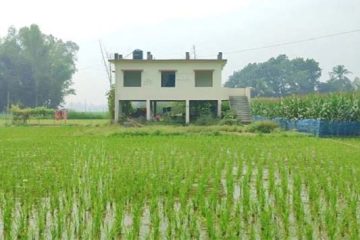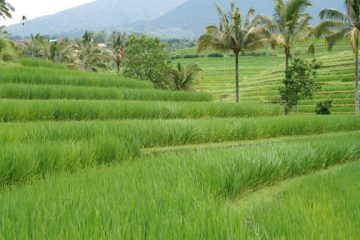Poachers in northern districts catching a large number of such birds for customers in Dhaka
 Poachers are indiscriminately trapping and shooting a large number of pond herons and cattle egrets in the vast marshlands of the northern region every day to satisfy the appetite of consumers in the capital.
Poachers are indiscriminately trapping and shooting a large number of pond herons and cattle egrets in the vast marshlands of the northern region every day to satisfy the appetite of consumers in the capital.
It’s very usual for car riders in Dhaka to find vendors offering herons, lesser whistling or egret in the evening at different intersections. The vendors mainly sell these wild birds for meat consumption at Sheraton Hotel intersection, Elephant Road and Moghbazar targeting the car riders for a good price.
In almost every evening the vendors shout to sell the birds at Sheraton intersection.
“I was driving the car when a vendor came to offer me herons at Tk 1,200 for two pairs. The police know about it but never take actions though selling, trapping, killing and consumption of these birds are illegal,” said Dr SMA Rashid, a wildlife expert.
Besides these city points, wild birds are sold at some other markets including Tongi bird market on every Sunday and Thataribazar in old city.
Asked, a bird seller at Tongi said, “We can always get the birds whenever we need.”
Market sources say most of the supply comes from Rangpur, Tangail and neighbouring districts of Gazipur and Manikganj.
In the northern region, poaching of pond herons and cattle egrets has reached such a point that the species now face extinction. The International Union for Conservation of Nature (IUCN) however classified these species as “least concern”, meaning their number was satisfactory.
But as these species are disappearing fast from the marshlands and ponds, ecosystem of the northern region would come under a threat, environmentalists warn.
The poachers trap the birds or hunt those using airguns, which don’t require a licence, all over the eight northern districts. Awareness against this practice is so low that even the law enforcers don’t say anything to stop it.
The authorities concerned have no definite statistics about the past and present numbers of herons in the region. However, scientists and bird watchers think the number has reduced by half in the last two decades.
Hamidul Hoque, assistant professor of zoology at Carmichael University College, said the number of pond herons is already dwindling due to lack of food including fish and frogs.
“Indiscriminate use of pesticides and fertilisers and shrinking water bodies are fast depleting food chain for the birds and other animals whose existence is vital for our ecosystem,” said Hoque.
While many express their grief over poaching, a single person in Bhatina village in Dinajpur brings a light of hope.
A respected bird lover, Hashem Ali keeps vigil against poaching. Recently he has convinced villagers not to deplete bamboo bushes and create habitat for herons and other species.
Hashem’s endeavour now attracts hundreds of birds in the area and also bird watchers from other parts of the country.
“If the bamboo bushes were preserved in other places, herons would not disappear from our nature,” Hashem observed.
Divisional Forest Officer Abul Kalam Azad however said it is not true poaching alone is playing a role behind decline of herons in the north.
“Herons’ habitat is shrinking as bushes and water bodies are disappearing. Herons are migrating to the southern regions, especially to the Sundarbans, in a large number where human intervention is less and food is abundant,” he said.
District Live Stock Officer Shamsul Hoque said the birds are migrating for lack of food and blamed intensive use of insecticides and chemical fertilisers for it.
Additional Director of the Department of Agriculture Extension Mohshin Ali said use of pesticides of carbofuran group like Furadan, Agrifuran, Sunfuran for long has wreaked havoc on the ecosystem of the entire region.
“Fish, snakes and frogs were wiped out thanks to use of toxic pesticides of this group. By the time our department imposed a ban on manufacturing and marketing pesticides of carbofuran group, it was a little too late,” Mohshin observed.
“We can’t say the pesticides now in use are fully eco-friendly, but farmers have no alternative to it,” he said.
Asked why they are not taking action against open sale of wild birds, Tapan Kumar Dey, conservator of forest wildlife division of the Department of Forest, said “We don’t have enough manpower to take necessary steps. But we are doing our best with the limited resources we have.”






